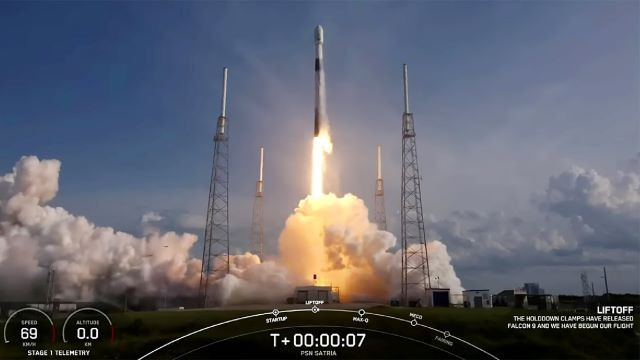Popular Reads
Top Results
Can't find what you're looking for?
View all search resultsPopular Reads
Top Results
Can't find what you're looking for?
View all search resultsA decade of the Indonesian Space Law: What next?
As Indonesia braces for a presidential election in February of next year, it is not clear if space activities will gain the government’s attention this time around.
Change text size
Gift Premium Articles
to Anyone
T
his year marks the anniversary of the 2013 Space Law. The legislation came into force long after Indonesia achieved the distinction of being the first developing country to own and operate satellites for domestic communication in 1976. Given its unique geographical and demographic attributes, Indonesia relies on science and space technology to pursue national interests.
The Space Law assumes a critical role in facilitating the effective implementation of a national space policy. Ideally, a space law should be innovative, comprehensive and in harmony with international space law conventions.
Two decades ago, in 2003, the academic document pertaining to Indonesian space law was meticulously finalized. The formulation of this academic document followed Indonesia's ratification in 2002 of the Magna Charta Outer Space Treaty of 1967. After undergoing a dynamic process, the draft Space Law was approved by the House of Representatives on July 9, 2013, and was enacted as Law No. 21/2013 on (Outer) Space on Aug. 6 of that year.
The law made Indonesia the first country in ASEAN to enforce national space legislation. The Philippines followed suit in 2019, and Malaysia in 2022. A few ASEAN member states are either considering or are already in the process of drafting national space legislation, such as Thailand, Vietnam and Singapore.
The aim of a legal framework regarding outer space is to welcome further development of space activity, laying the foundation for space industry growth. Foreign Direct Investment (FDI) in space activities comes with legal certainty, which can attract investors.
Legal certainty is crucial considering the dual use of space technology as an agent of growth in peace and the ultimate weapon in the 21st-century war. Coordination between the Investment Ministry and the Defense Ministry is one of the keys to the growth of Indonesia’s space industry.
Foreign investment in sectors pertaining to the space industry and services should be well calculated according to national interests. Currently, ASEAN as a regional initiative has neither a clear nor progressive blueprint on space activities, leaving it to each ASEAN member state to determine their own guidelines.



















